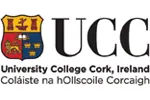We're moving! This site will be relocating to goingto.university in 2026. Please update your bookmarks to the new address.


Ireland
University College Cork (UCC)| The award | How you will study | Study duration | Course start | Domestic course fees | International course fees |
|---|---|---|---|---|---|
| BSc (Hons) | Full-time | 4 years | September | - | - |
Overview
Biomedical Scientists work in partnership with doctors and other health healthcare professionals in investigating samples of tissue and body fluids in order to diagnose disease and monitor patient treatments.
Biomedical Science is a continually changing dynamic profession and involves study of the diverse areas of medical science including biochemistry, microbiology, cellular pathology, haematology and transfusion science. It provides training in cutting-edge technologies to facilitate investigation of disease and medical research.
Course Details
The aim of this course is to educateyou in Biomedical Sciences, including the state-of-the-art technologies used in hospitals and research laboratories. It is offered jointly by UCC and Cork Institute of Technology and approximately 35 places are available.
To be eligible to work as a Biomedical Scientist in a hospital laboratory,you must hold a BSc Honours degree in Biomedical Science, followed by the postgraduate Diploma in Clinical Laboratory Placement. The degree, in conjunction with the clinical placement, is accredited by both the Academy of Clinical Science and Laboratory Medicineand the Institute of Biomedical Science, allowing you to work as a Biomedical Scientist in hospital laboratories in Ireland, the UK and elsewhere.
Year 1 Modules:
Core
BM1001 & BM1002Introduction to Biomedical Science I & II (5 credits each)
BM1003Introduction to Cell Biology for Biomedical Scientists (5 credits);
BM1004Creativity, Innovation & Teamwork (5 credits);
BM1007Introduction to Health Science (5 credits);
BM1008Introduction to Human Biology (5 credits);
BM1009 & BM1010Biological Chemistry I & II (5 credits each);
MA1001 & MA1002Calculus for Science I & II (5 credits each);
PY1008Physics for Biomedical, Environmental, Food and Nutritional Sciences (10 credits)
Year 2 Modules:
Introductory Molecular Biology; Analytical Chemistry; Analytical Science and Instrumentation; Introduction to Clinical Biochemistry; Haematology & Transfusion Science I; Mammalian Cell & Tissue Structure; Biomolecules; Principles of Metabolic Pathways; Fundamental of Microbiology; Principles of Microbiology; Introductory Physiology I & II
Year 3 Modules:
Pharmacology; Molecular Microbiology; Diagnostic Microbiology; Haematology & Transfusion Science; Research Methods for Biomedical Scientists; Medical Microbiology; Immunology: Host Response to Pathogens; Transmission and Epidemiology of Infectious Diseases; Structural Biochemistry; Advanced Metabolism; Cell Signalling; Cellular Pathology
Year 4 Modules:
Transfusion Science; Clinical Biochemistry and Endocrinology; Quality Management Systems for Biomedical Scientists; Statistics in Biomedical Science; DNA Diagnostics & Medical Genetics; Haematology; Bioinformatics for Biomedical Science; Virology; Cellular Pathology; Research Project
See the College Calendar for more detailed information on the programme and the Book of Modules for a more detailed description of programme modules.
Fact File
Course Code: CR320
Course Title: Biomedical Science (Joint Programme with CIT)
College: Science, Engineering and Food Science
Duration: 4 Years
Teaching Mode: Full-time
Qualifications: BSc (Hons)
NFQ Level: Level 8
Costs: Full-time EU/EEA/Swiss State undergraduate students may be exempt from paying tuition fees. The State will pay the tuition fees for students who satisfy the Free Fees Criteria. In 2016/17 the Capitation Fee will be EUR 165. Students entering this course will pay the Student Contribution Charge to CIT.
2017 Entry Requirements: H5 in two subjects, and O6/H7 in four other subjects in the Leaving Certificate from Irish or English, Mathematics and three or four other subjects recognised for entry purposes. H4 must be obtained in either Physics, Chemistry, Biology or Physics-with-Chemistry
Entry Points: 2016: 545*. Points may vary from year to year.
Course Practicalities
This course is offered jointly with Cork Institute of Technology.
Assessment
Students are formally assessed through continuous assessment and end-of-semester examinations. A range of assessment methods are used and include: essay and short answer examinations, multiple-choice-question examinations, evaluations of laboratory practical skills, laboratory reports, independent laboratory research project, research mini-thesis and seminar presentation and oral examination.
Application Procedure
EU Applicants: Application to Year 1 of the degree programme is made directly through the Central Applications Office (CAO). Applicants should apply online at www.cao.ie. The normal closing date for receipt of completed applications is 1st February of the year of entry.
Further Contact Information
Dr. Sinead Kerins,
021 420 5417
2017 Entry Requirements: H5 in two subjects, and O6/H7 in four other subjects in the Leaving Certificate from Irish or English, Mathematics and three or four other subjects recognised for entry purposes. H4 must be obtained in either Physics, Chemistry, Biology or Physics-with-Chemistry
Entry Points: 2016: 545*. Points may vary from year to year.
Contact University College Cork (UCC) to find course entry requirements.
Below are some suggested courses at other providers that you may also be interested in:
Graduate Diploma in Foundations of Canadian Law GDL
Osgoode Professional Development, York University
Find out moreMaster in Design for Mobility Solutions Master Degree
IAAD. - Institute of Applied Art and Design
Find out moreTechnology, Media and Telecommunications Law LLM, LLM, LLM
Centre for Commercial Law Studies, Queen Mary University of London
Find out moreIf you do not meet the entry requirements for this course then consider one of these courses from another institution:
There are 338 other courses listed from University College Cork (UCC). A selection of these are displayed below:
Join the StudyLink email list and never miss a chance to turn your study abroad dreams into reality!

Find out more about studying in Ireland